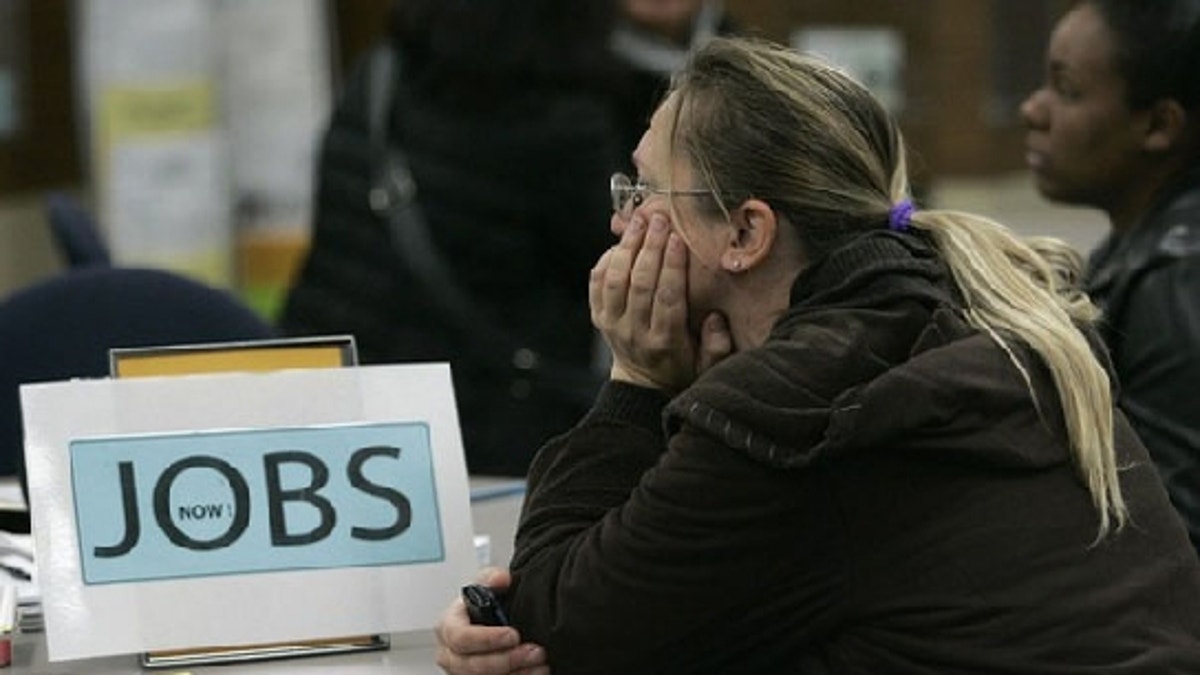
Nov. 20: A worker awaits the start of seminars for job seekers at an employment center in San Francisco, Calif., where unemployment in November was 12.3 percent. The national unemployment rate peaked at 10.2 percent in October (Reuters).
WASHINGTON -- With the front line of defense for unemployed Americans crumbling, the jobless are facing potentially reduced benefits, and businesses -- possibly higher taxes.
So far, 25 states, including California, New York, Texas and Michigan, have run out of unemployment insurance money and have borrowed $24 billion from the federal government -- loans that are interest free.
By 2011, 15 more states will have exhausted their jobless trust funds and need $90 billion in loans to keep handing out benefit checks, according to federal projections.
The federal government, however, is already up to its eyeballs in red ink, finishing fiscal year 2009 with an all-time high $1.42 trillion deficit and likely to top that this fiscal year as it extends unemployment benefits.
In November, President Obama signed legislation to extend jobless benefits by 14 weeks nationally and by an additional six weeks after that for states with unemployment rates of 8.5 percent or higher. The bill would pay nearly 1 million workers an average $300 per week in extra benefits, according to the White House, and would allow businesses to recoup past tax payments for recent losses.
Some analysts say in the long term, the bailout won't have a lasting impact on state coffers. That's because typically employers pay into a state insurance fund through a payroll tax and eventually businesses will replenish the trust funds.
In the short run, though, state governments are under pressure either to hike taxes or to reduce unemployment benefits at a time when the U.S. economy has been weakened by the longest recession since World War II.
"Everyone agrees that's not a good thing to do when the unemployment rate is 10 percent," said Gary Burtless, a senior fellow in economic studies at the Brookings Institution and an expert on labor policy.
Burtless said payroll taxes, which on average nationally is about 0.6 percent, are too low and states should have been imposing higher taxes to avoid running out of money.
"States are supposed to build up reserves to withstand severe recessions that they have experienced in the past," he said. "But instead, what happens, once employers in a state see there's a positive balance in the trust fund, they begin urging state legislators to cut back taxes."
The states with the lowest average payroll taxes are Virginia, (0.23), New Hampshire (0.25), South Dakota (0.26), Hawaii (0.27), and Texas (0.27). By contrast, the states with the highest average payroll taxes are Alaska (1.29), Rhode Island, (1.17), Michigan (1.08) and Oregon, (1.02).
According to November unemployment rates from the Bureau of Labor Statistics, Virginia had 6.6 percent unemployment, New Hampshire's was 6.7 percent, South Dakota saw 5 percent unemployment, Hawaii had 7 percent and Texas 8 percent -- all below the national average of 10 percent.
Alaska's unemployment rate in November was 8.7 percent, Rhode Island's was 12.7 percent, Michigan, 14.7 percent and Oregon, 11.1 percent.
Analysts dismiss any correlation between a state's payroll tax and its unemployment rate, saying the payroll tax is very minimal compared to taxes for Social Security or Medicare.
Richard Hobbie, executive director of the National Association of State Workforce Agencies, said he expects states to raise payroll taxes and cut unemployment benefits as a result of the recession.
"History shows it's a combination of the two" that is required to overcome the trust fund deficit, Hobbie said.
Hobbie said some states, like Texas, would rather keep employer taxes low to stimulate the local economy and borrow money when reserves aren't sufficient to weather a recession.
"There are competing philosophies about reserves," he said, adding that it is unknown which one is most effective.
But Burtless said raising taxes would solve the imbalance.
"I imagine that if they raise the payroll tax by .1 or .2 percent in the next five or 10 years, it will be enough to eliminate the insufficiency of the funds," Burtless said.
Borrowing money from Uncle Sam won't remain free for states forever. If a state doesn't repay the government within a few years, it faces interest and penalties.
Still, borrowing by states is not unusual.
"The bottom line, the system has been through serious recession before but the system has survived," Hobbie said, adding that recoveries from the major recession in the 1970s and 1980s was bolstered by strong economic growth. "The real question is will we have the steady economic growth to recover the way we did before?"




